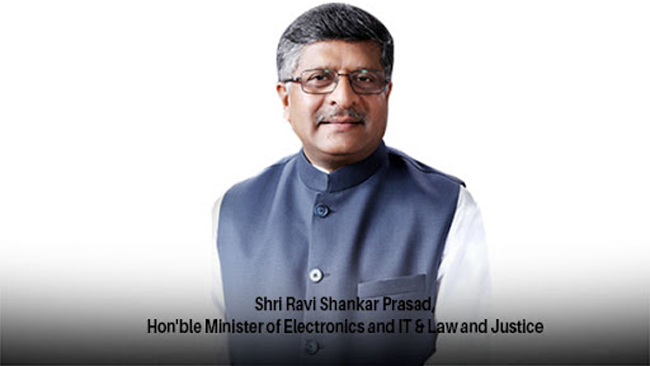Judges Not Appointed Basis Reservations Of 'Caste' And 'Class' viz. Constitutional Tenets: Hon'ble Law Minister

The Hon’ble Law Minister Shri Ravi Shankar Prasad, in reply to a letter by Senior Advocate P. Wilson, stated that Articles 124, 217 & 224 of the Constitution of India does not provide for class or caste based reservation in the Indian Judiciary and that “due consideration” is being given to suitable candidates so as to ensure diversity in the appointment of Judges in the High Courts.
"I would like to inform you that the appointment of judges of the Supreme Court and High Courts is made under Articles 124, 217 and 224 oft he Constitution of India respectively which do not provide for reservation for any caste or class of persons. However, the Government is committed to social diversity in the appointment of Judges in the Supreme Court has also been requesting the Chief Justices of the High Courts that while sending proposals for appointment of Judges, due consideration be given to suitable candidates, belonging to Scheduled Castes and Schedules Tribes, Other Backward Classes, Minorities and Women to ensure social diversity in the appointment of Judgments in High Courts"
- Hon'ble Law Minister
Wilson, also a member of the Rajya Sabha, on September 5, 2020 wrote a letter to Hon’ble President Ram Nath Kovind, urging him to take into cognizance and address the issue of under-representation of certain social groups in the Judiciary.
Conveying the general skepticism of the population, Wilson wrote that, a privileged and homogenous group of judges are not considered to be representative of the wide spectrum of the intersectional populace which encompasses the lives of citizens.
“How else can on explain the lack of more number of women and judges from historically oppressed sections of society?” he asked.
Since, public faith and legitimacy is the grease that ensures the smooth functioning of a vivacious democracy he further said, “The crisis of a lack diversity in the Union Judiciary has caused a lot of fear and agony in the minds of the people of this country, who feel that they have not been adequately represented.”
With respect the quality of judgments, he said that, a diverse Bench’s collective decision would include complementary perspectives while laying down the law, as compared to a homogenous one.
To further elaborate he stated, “A Judge who was born into privilege, and was raised in upper echelons of society might not appreciate the law pertaining to reservations as much.”
Sometimes, in order to deny diversity, ‘merit’ is used as a proxy to justify the retention of a particular class or community of persons as Judges, this in a nation of complex social compositions poses a serious constitutional challenge.
Lastly he pointed out that when people are unable to relate to the figureheads of justice they feel unheard and are less willing to engage in to judicial, social and democratic mechanisms of the nation.
Access Copy of Letter
